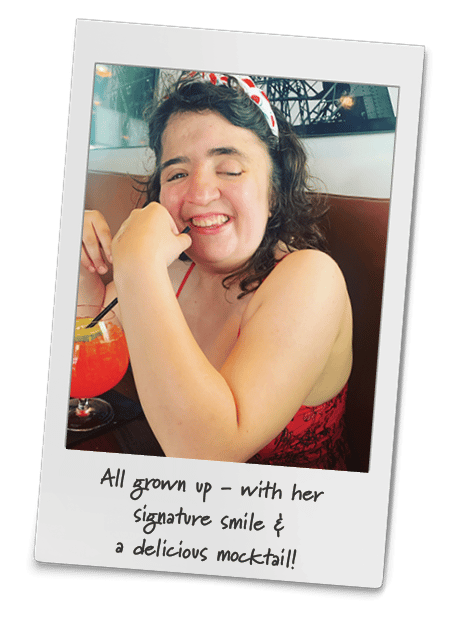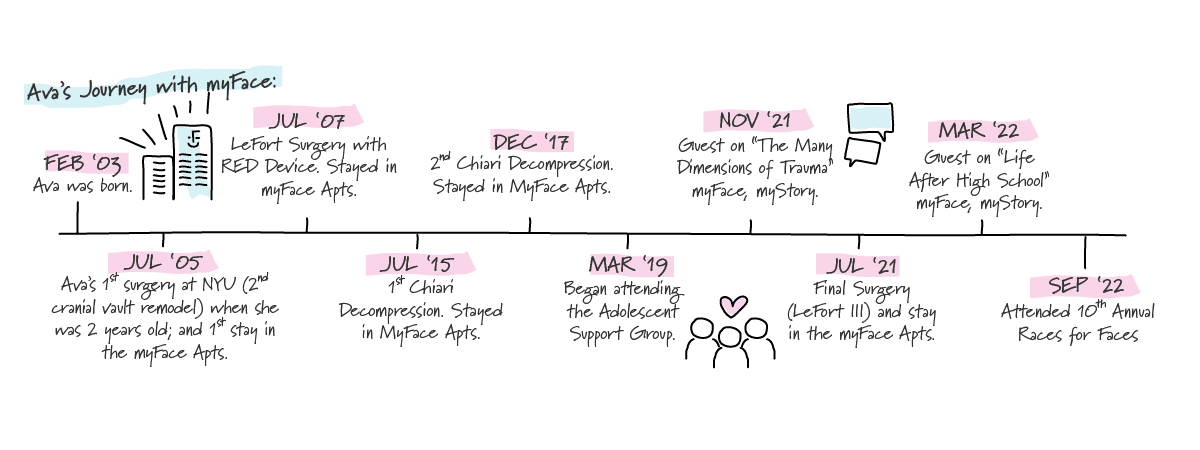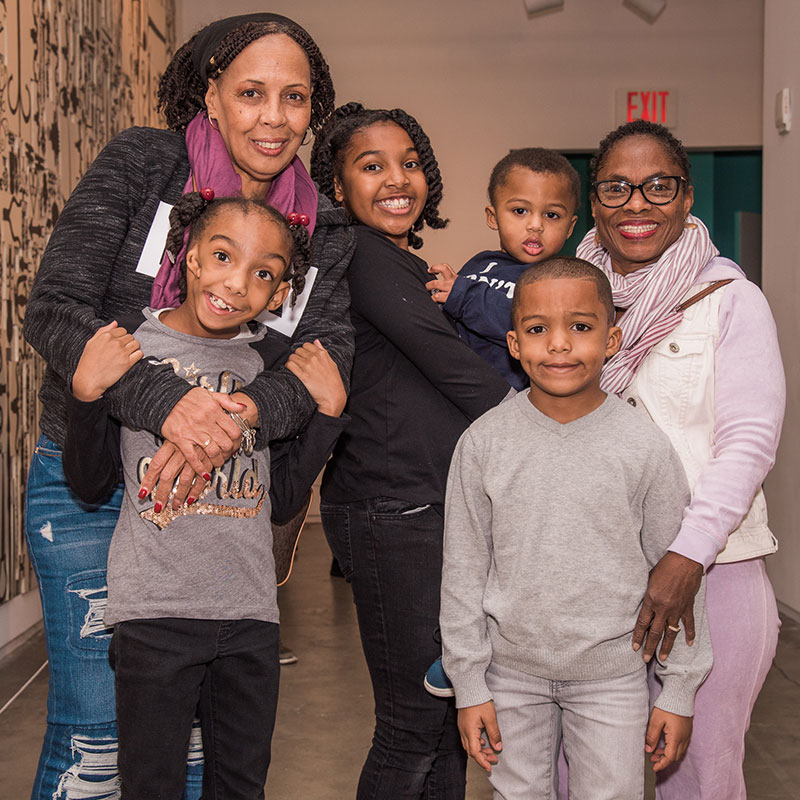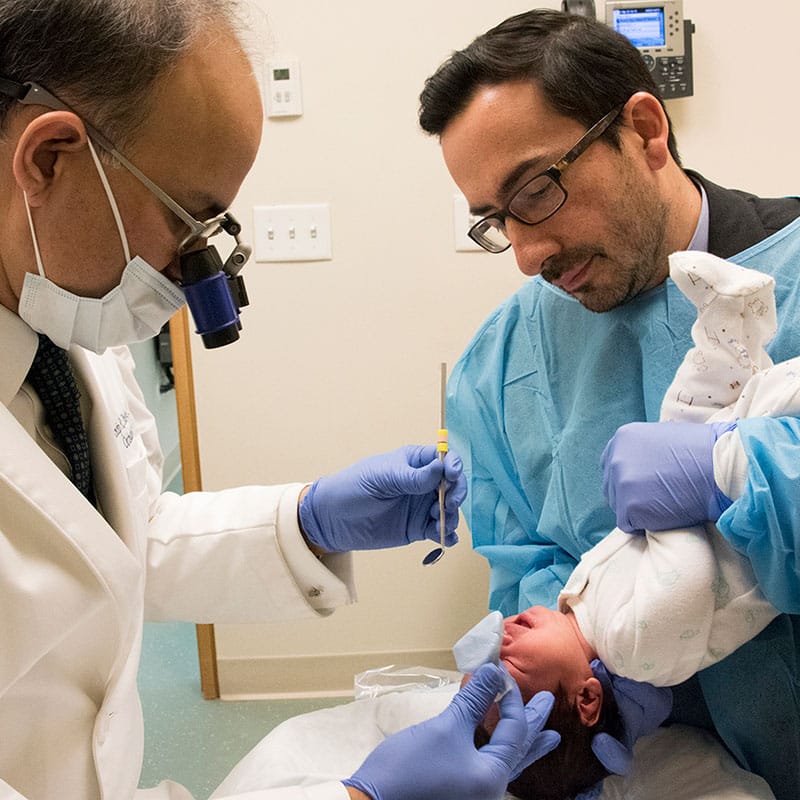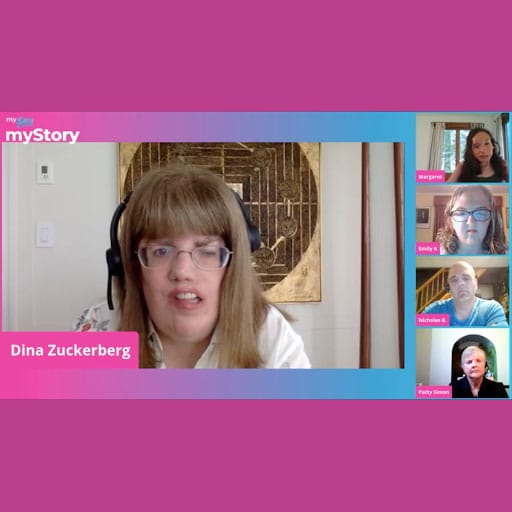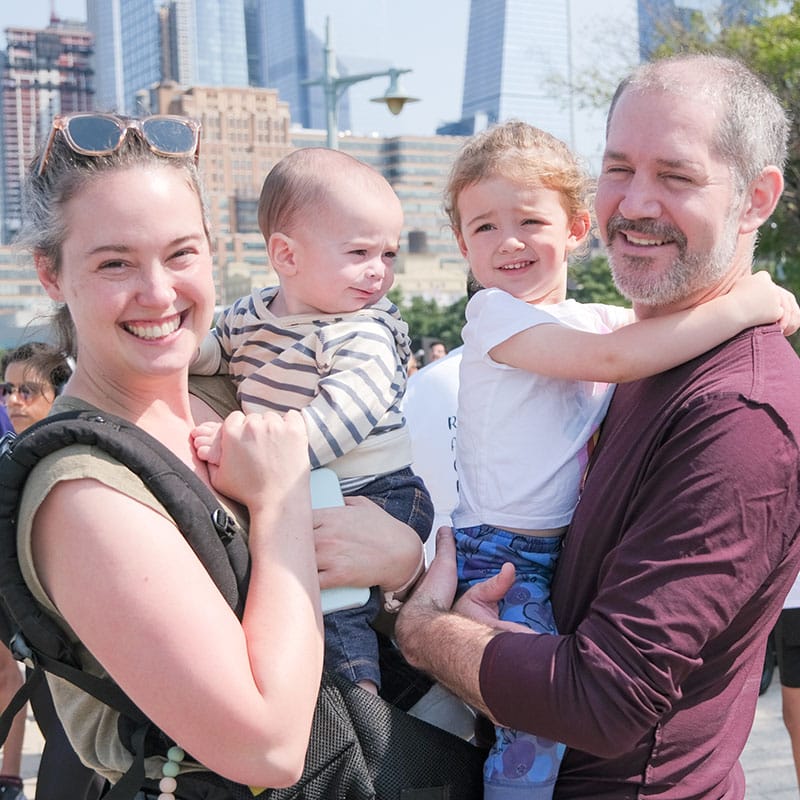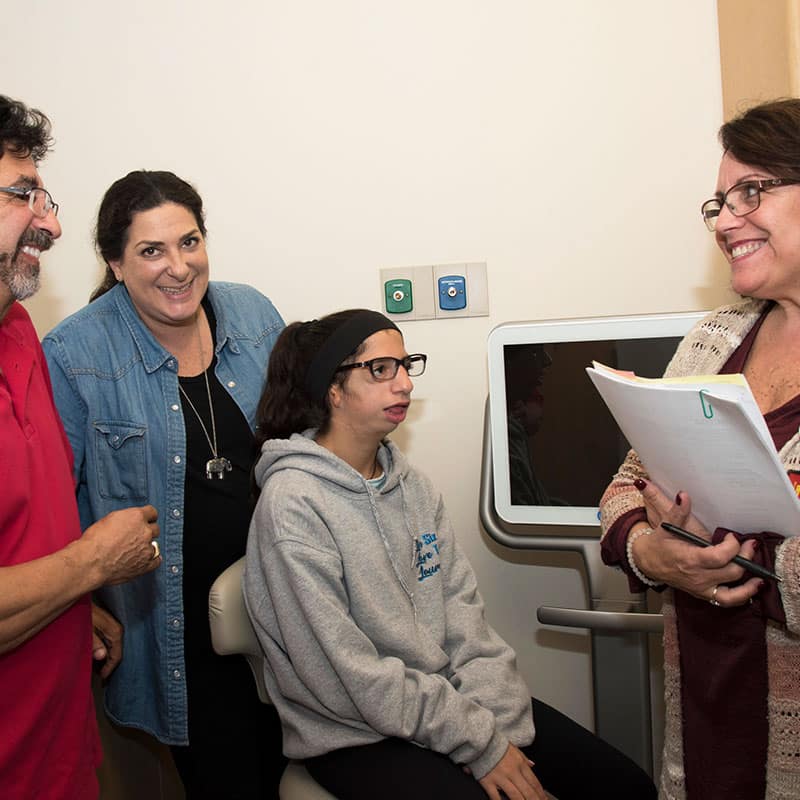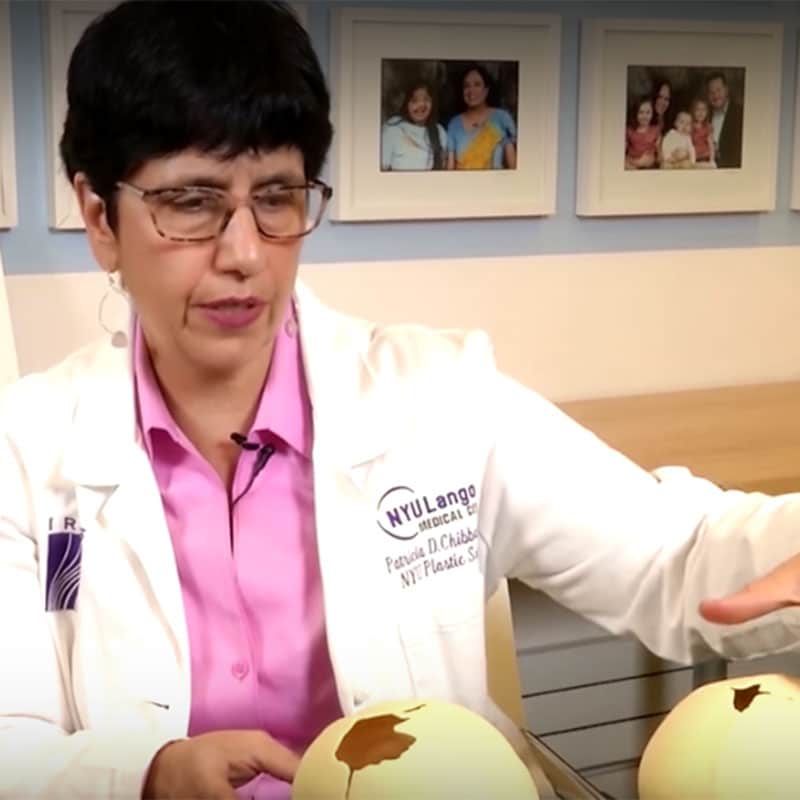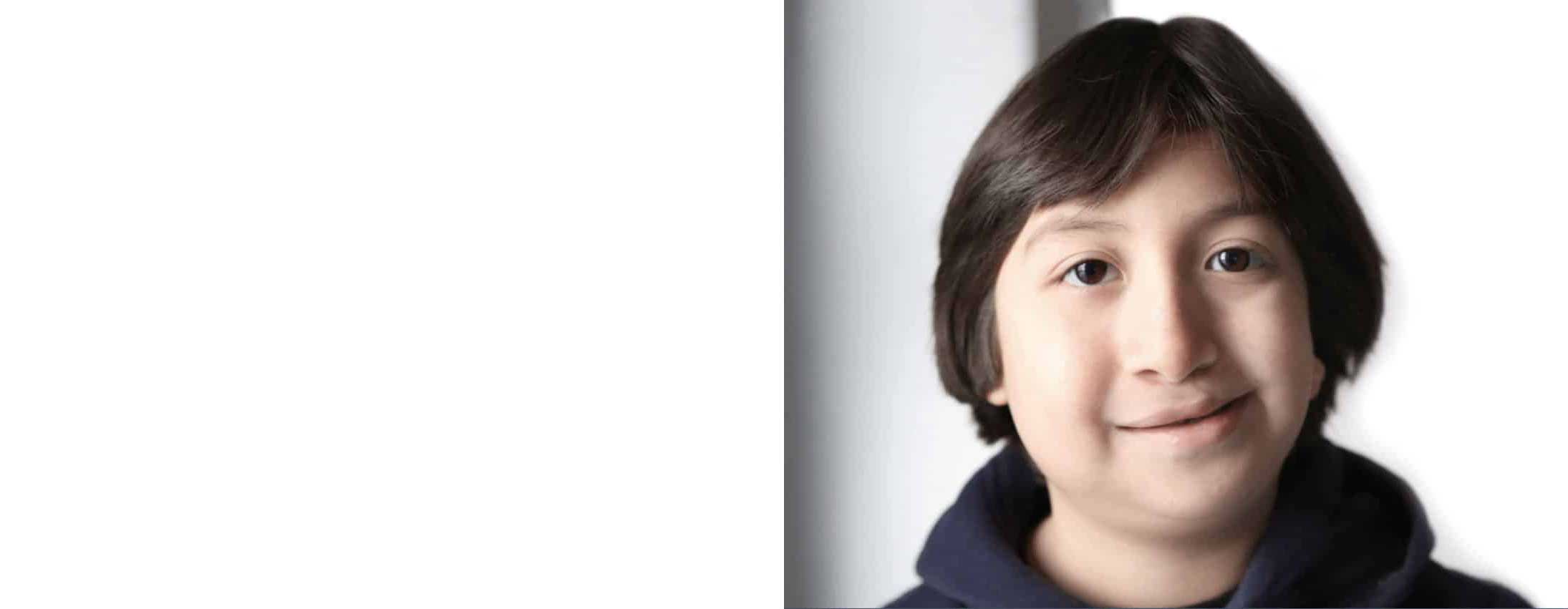To download a PDF version of Ava’s story, click here.
Recently, I had the pleasure of sitting down to speak with Ava Beeler, a vivacious and outgoing 19-year-old, to learn more about her journey and why myFace is so important to her. A sophomore at Manchester Community College in Connecticut, Ava loves to cook, bake, and spend time with her family. She’s majoring in Human Services and hopes to one day be a therapist for young teens. On paper, Ava seems like a typical young woman her age, however, she is anything but typical.
In fact, she’s quite extraordinary.
Ava was born with Pfeiffer Syndrome, a condition where her brain and skull were fused at birth, resulting in a cloverleaf skull, outward and prominent eyes, and hearing impairments. She also had a tracheostomy tube implanted at birth to help her breathe, which she had until she was 10 years old. Given her remarkable zest for life and infectious positive attitude, you would never guess that she has faced more adversity than most – including undergoing more than 30 surgeries in her young life.
Imagine that. 30+ surgeries before you’re 20? I can’t.
Ava feels fortunate though, and always credits myFace for playing such an integral role in her life. Ava’s journey with myFace has encompassed everything from staying at the myFace Family Apartments during her numerous visits to the myFace Center for Craniofacial Care, and participating in our Support Groups. She shares her enthusiasm about myFace by helping to raise awareness for the craniofacial community by being a repeat guest on our myFace, myStory Podcast, and participating in community events like Races for Faces.
Ava’s journey with myFace began with her first skull surgery at the myFace Center for Craniofacial Care at NYU Langone Health when she was 2 years old. Like most children with Pfeiffer Syndrome, Ava underwent a handful of surgeries between birth and the age of 10, including multiple skull surgeries, a midface advancement (Le Fort II surgery), and getting her tracheostomy tube removed, among other procedures. Ava shared with a chuckle,
“I don’t really remember a lot of the surgeries before the age of 10, which might be a good thing.”
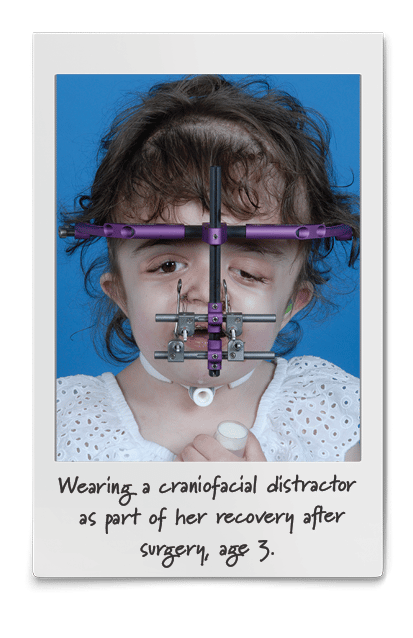
Instead, what she remembers most from those early years is being upset whenever she had to miss school for long periods of time due to procedures and recoveries.
While talking about the difficulties of her childhood, I was struck by Ava’s sense of humor, lightheartedness, and unyielding optimism. Ava credits her parents, Laura and Malcolm, for fostering such a supportive and empowering environment. Her facial difference and medical issues were never the focal point of her upbringing or their conversations.
“My parents never told me that they felt bad for me for having a trach or for undergoing so many surgeries… they would tell me instead that I was the bravest kid in the world, and that they were proud of me. So I never felt different, or like a victim, and I never felt that having Pfeiffer Syndrome was a bad thing.”
Ava and her parents’ “matter-of-fact” attitude towards her surgeries, trach, and other medical issues was the reason why Ava was never embarrassed by being the only student at school with a nurse. “When my nurse needed to suction my trach or take me to the restroom, it was just what needed to be done, and not a big deal.”
Ava’s nurse also encouraged her to socialize with other kids at school instead of sitting next to her, making Ava feel like an independent, normal student. She added, “sometimes kids at school or people in town might have questions about my trach, for example, but I would answer simply that it helps me breathe. And that was that!”
Like most people with Pfeiffer Syndrome, when Ava turned 16, she had to undergo additional surgeries, as her face and jaw were fully developed. Unfortunately though, for Ava, this busy period of painful treatment and long recoveries also coincided with the height of the pandemic, which came with its own struggles and isolation.
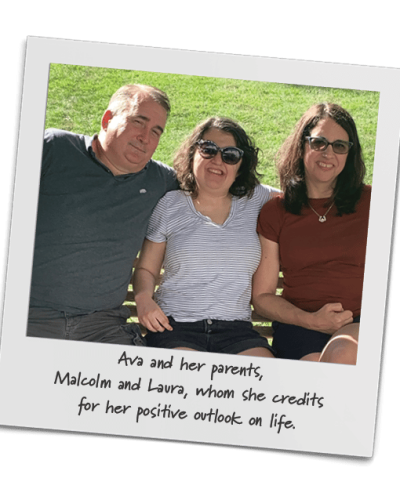
For the first time during our conversation, Ava didn’t smile much while speaking about this time in her life, sharing,
“I know that I’m bubbly and happy, but I’ve been through depression and PTSD from operations. Those feelings are real, and I know a lot of people in the craniofacial community have them. Over the years, through therapy, I’ve learned to accept that it’s okay to have a hard day, it’s okay that surgeries are hard. I’ve learned that it’s okay to accept all my feelings, whatever they may be. They pass, and when they pass, you come out stronger.”
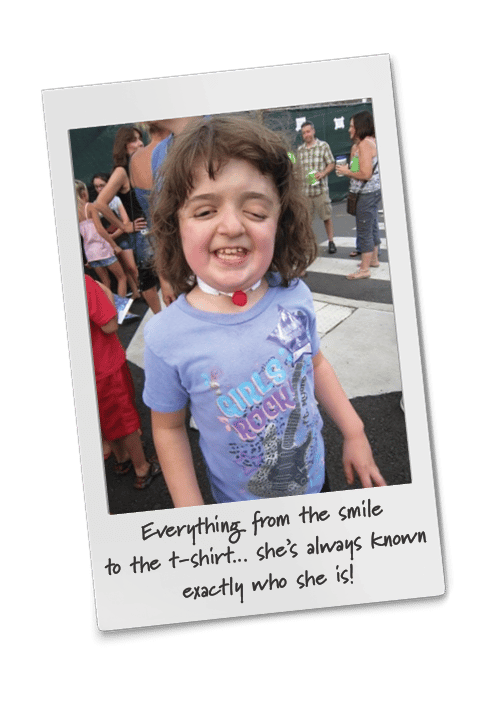
I asked Ava if she was able to share these feelings with her friends, and she explained that it is difficult to talk to the public about craniofacial surgeries because, while a lot of her surgeries are considered “plastic surgery,” they are much more involved than just being cosmetic procedures. They are done for medical reasons, to help with daily – yet critical – functions, such as breathing, chewing, and swallowing. It was during this time as a teenager that Ava joined myFace’s Adolescent Support Group. For the first time, she had a community of other kids like her who had struggled with the same things she had and could truly understand how she felt.
Not only did she connect with the kids in this group, but the young adult facilitator, Eric Riklin, is also a myFace community member born with Crouzon Syndrome. Ava’s participation in this group sparked her interest in becoming a therapist herself someday. “Eric was a source of inspiration for me and such a powerful mentor.”
Last year, Ava had her final major procedure – orthognathic surgery, also known as jaw surgery or Le Fort III surgery. “The last operation was the worst. My face was so swollen, and after it healed, I looked so different… But I realized that I just had to sit and deal with my emotions and not push them away. I was in a sad place for a while… I had to get to know myself again.” I am so glad that Ava was able to turn to myFace’s Adult Support Group, where she could continue to make connections with even more of the myFace community, who can help her as she transitions into adulthood.
“I love myFace. I meet people that are younger than me and older than me… But we still share so much. Above all, there is always much love and respect.”
Watching Ava blossom and use her voice to support and empower others at our 10th Anniversary Races for Faces this past September – was an inspirational moment that moved the crowd to tears. She proclaimed, “Each and every person with a facial difference is special and worth celebrating!” And then, in typical Ava fashion, she led a dance party from the stage!
“Plenty of times I’ve wondered why I was born this way. But I don’t think of it negatively. I think I was born this way to raise awareness – I may look different, but that’s okay, I’m just like everyone else. I love to share my story and help younger kids going through the same things… to give messages of hope and joy.”
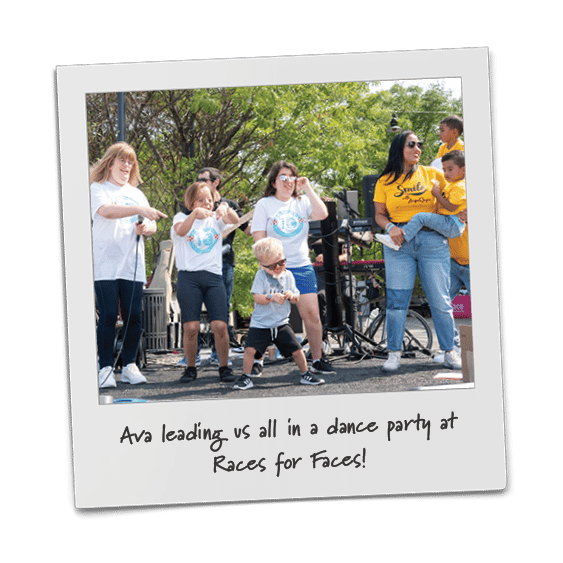
Towards the end of our time together, Ava asked me why I think so many people with facial differences struggle. I answered that perhaps it is because they didn’t have the same emotional support growing up as she did, or the same type of community. With wisdom beyond her years and her trademark compassion, she declared:
“The mission of myFace is so important. Reaching kids all across the country with differences – especially those who aren’t in a positive environment and who don’t have access to support from a comprehensive care team. I see that as THE important mission for myFace. I know firsthand the difference that it can make.”
Ava hopes that in five years she will be working with myFace as a therapist and be a part of that same support system that she relies on. Ava – I would love that! The entire team at myFace is so excited to see how you continue to spread joy and compassion, and how you use your voice to advocate for our myFace family and the larger craniofacial community for years to come.
There are thousands more individuals across the country like Ava that still need our help. By making a donation to myFace today, you can help ensure that other kids like Ava have the same access to the critical resources, care and support they need – and deserve.
And that they never feel alone.
